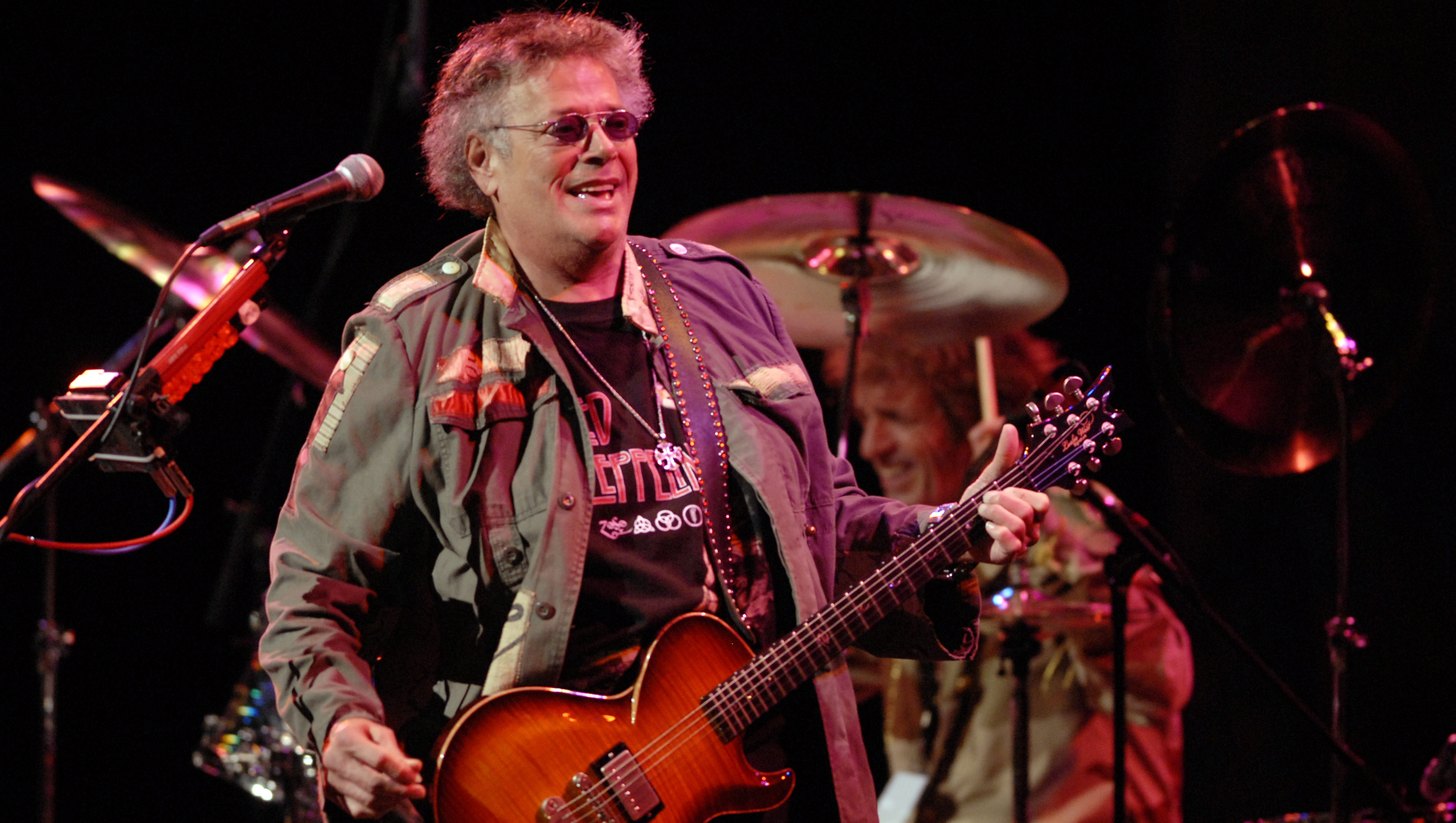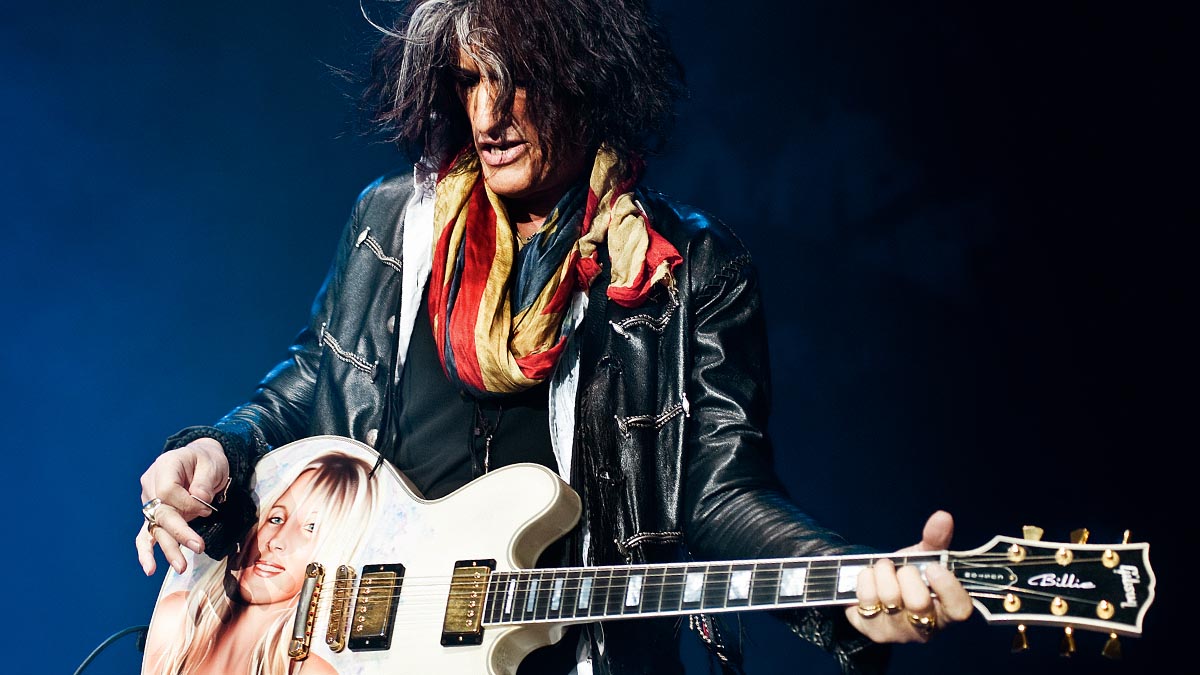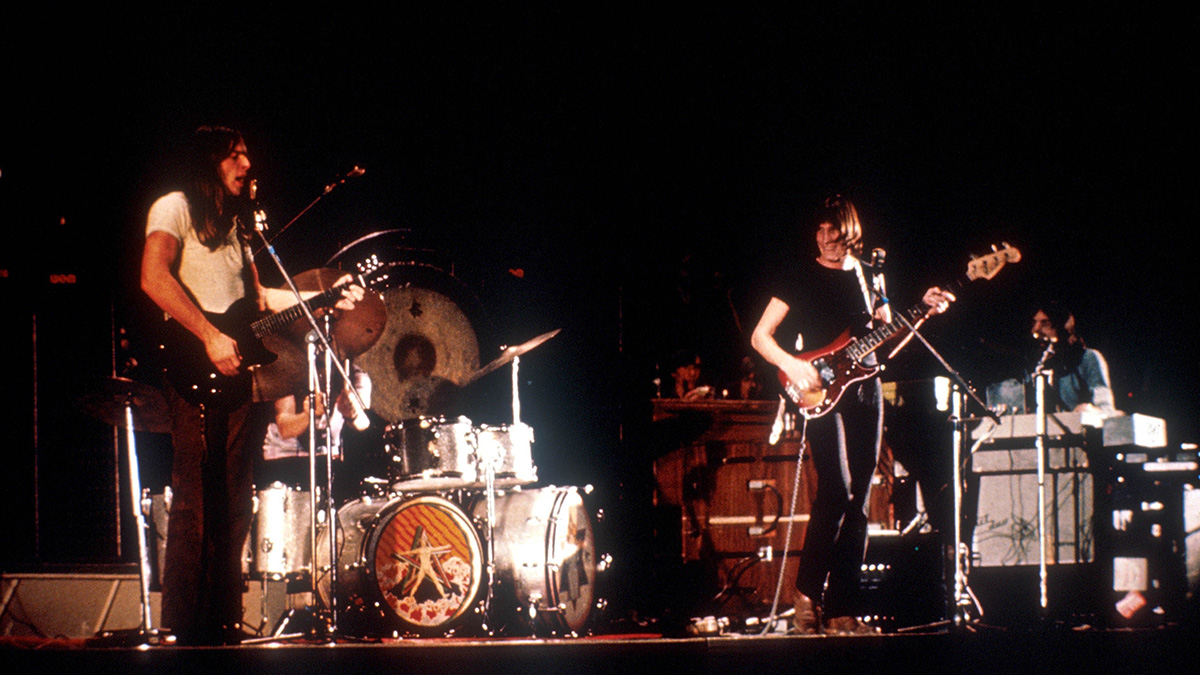Guitar legend and Mountain frontman Leslie West dies aged 75
Best known for his scorching guitar work on Mississippi Queen, West influenced generations of players

Guitar legend Leslie West, one of the most influential and original players to emerge from the late ‘60s rock scene, has died at the age of 75.
The news was confirmed by Dean Guitars – which West endorsed – on Facebook, with Dean CEO Evan Rubinson adding, "To a man that I truly loved more than most – the funniest, most honest guy I’ve met."
West suffered cardiac arrest at his home near Dayton, Florida on December 21, and had been gravely ill, according to his brother, Larry West Weinstein.
On December 21, Weinstein posted on Facebook that West’s heart had stopped and he was placed on a ventilator. “I am asking for all your prayers,” Weinstein wrote. “[His wife] Jenni is by his side in Florida but it’s not looking good. Thanks Jenni, he wouldn’t have made it this far without you.”
“His heart gave out and he’s on a ventilator. May not make it through the night.”
West was best known as the guitarist, songwriter and co-vocalist for Mountain, who rocketed to fame with the indelible Mississippi Queen, powered by West’s massive riffs and honeyed, rounded lead tone.
Mountain, who are also known for classic rock staples like Never in My Life, Nantucket Sleighride and a cover of Jack Bruce’s Theme For an Imaginary Western, broke up and reformed numerous times beginning in the early ‘70s.
Get The Pick Newsletter
All the latest guitar news, interviews, lessons, reviews, deals and more, direct to your inbox!
West was born Leslie Weinstein in New York City on October 22, 1945. He first gained recognition at 21 with the garage-rock act the Vagrants, who had minor hits in 1966 with I Can't Make a Friend and, the next year, a cover of Otis Redding’s Respect.
As for what inspired him to pick up the guitar, he told Guitar World, “Elvis Presley. My uncle was a TV writer, and Jackie Gleason had a TV show called American Scene Magazine on Saturday night, where he did all these characters – Honeymooners, Joe the Bartender, all these guys. So my grandma took me to see the show and the announcer said that during the summer, Jackie Gleason would be replaced. Tonight's musical guest was Elvis Presley.
“It was the first time Elvis had played on TV. I got to see him as a little kid, and he blew me away. My grandma got my grandpa to get me a four-string guitar. I couldn't play a six-string yet, and I didn't even know they made a four-string guitar.”
The Vagrants had worked with producer Felix Pappalardi, who also produced Cream’s 1967 album, Disraeli Gears. Two years later he produced West’s first solo album, Mountain, which included the classic (and eventually heavily-sampled) Long Red. Shortly after, West and Pappalardi formed a band together, also named Mountain.
Mountain were described by Rolling Stone as “a louder version of Cream,” and to say they made a big splash is an understatement: the group’s third-ever show was played in front of 400,000 people at the Woodstock festival in August, 1969. With the classic lineup of West on guitar and vocals, Pappalardi on bass and vocals, Corky Laing on drums and keyboardist Steve Knight, the band released their debut album, Climbing, in March, 1970.
The album led off with Mississippi Queen, which contained all the hallmarks of West’s style – a thick, heavy and distorted guitar tone, smooth, melodic lead phrasing and a slow, wide vibrato. It’s an approach that future legends like Eddie Van Halen, Randy Rhoads, Zakk Wylde and Joe Bonamassa would point to as an influence on their own playing.
Assessing his own guitar work in a 1987 interview with Guitar World, West said, "I just took over where Clapton left off when he quit. To make up for my lack of speed I added in a lot of vibrato from the blues guys like a chef adding ingredients to a stew, you know – and worked on my squeals and pig grunts."
As for his sound, which was characterized by a Les Paul Junior with a P-90 pickup, he continued, “You gotta have the Junior to do 'em right, because of the single pickup – see the way the string can bend down when you hit 'em? lf there was a neck pickup it'd be in the way. You bury the pick with your thumb and you have all the room you need.
“And the tone – well, it was fat just like me, right? It was just two Sunn stacks with the Colisseum PA heads. They were Hendrix' old amps, re-tolexed and re-coned. See, the PA heads had those four inputs and a master volume, which started the distortion thing for me: I'd turn the mic volume all the way up and the master all the way up, and overdrive the thing like crazy."
Throughout the early ‘70s Mountain toured incessantly and released two more records – 1971’s Nantucket Sleighride and the following year’s live/studio effort Flowers of Evil – before disbanding for the first time, with drug abuse and exhaustion cited as factors.
West and Laing joined up with former Cream bassist Jack Bruce in the trio West, Bruce & Laing, and immediately hit the road. They also recorded two studio albums, Why Dontcha and Whatever Turns You On, before drugs and other issues led to that band’s breakup as well.
“All the stuff with Mountain and West, Bruce & Laing was done over such a short time – four years, man,” West said. “It seemed like a helluva lot longer than that.”
West, of course, remained incredibly active after those four years. He and Pappalardi reformed Mountain (for the first time) in 1973, and he released a series of solo albums as well as played with a variety of artists, including Bo Diddley, Deep Purple’s Ian Gillan and Joe Bonamassa.
In the 2000s he collaborated with hard rockers Clutch, contributed to Ozzy Osbourne’s cover of Mississippi Queen and continued to tour and record both solo and with Mountain. He was inducted into the Long Island Music Hall of Fame in 2006.
Over the past decade, West was plagued with health issues. In 2011, his right leg was amputated just above the knee due to complications from diabetes. In the wake of the surgery and rehabilitation (he was fitted with a prosthetic) West was forced to postpone a scheduled 3 Guitar Heroes tour with Michael Schenker and Uli Jon Roth.
That same year, however, he released the album Unusual Suspects, which featured guest appearances from Slash, Billy Gibbons, Zakk Wylde, Steve Lukather and others. And he continued to record and tour.
“You know, when I use a prosthetic, I'm not that good with it yet and I’m a little nervous about wearing it onstage and losing my balance,” he told Guitar World. “Keeping balance is the trickiest part, but I’ll get it. Seems like an alien invaded me when I put that thing on. That was life-changing, but thank god it wasn't one of my arms.”
He continued, “I can still play, but the only difference is I sit in a wheelchair on stage, but I don't have to worry about my balance yet. I want to worry about playing and performing well. I'm really glad that I had Unusual Suspects all mixed and mastered before this happened, because I wouldn't have been in the mood to go record an album when this happened. I'm very lucky.”
West’s most recent album was 2015’s Soundcheck, which featured collaborations with Peter Frampton and Brian May, among others.
“I am really proud of this album because it sounds really good,” he told Blues Rock Review.
“Every album I do, I want to make that much better than the last one or have something about it flow better and I had some really good guests on the album. Usually when you have too many guests, it means you are not good enough to carry yourself. In this case, it was Peter Frampton, Brian May, Jack Bruce, and Bonnie Bramlett. That is a good bunch of people, most of them are going down, but I am really proud of how the album came out.”
Assessing his own playing, he told Guitar World, "I'm no great guitarist technically. I only play with these two fingers [index and ring]. But you wanna know why people remember me? If you take a hundred players and put them in a room, 98 or 99 of 'em are gonna sound the same; the one who plays different, has some of his own, that's the one you're gonna remember."
Rich is the co-author of the best-selling Nöthin' But a Good Time: The Uncensored History of the '80s Hard Rock Explosion. He is also a recording and performing musician, and a former editor of Guitar World magazine and executive editor of Guitar Aficionado magazine. He has authored several additional books, among them Kurt Cobain: Montage of Heck, the companion to the documentary of the same name.
“I heard the Money solo and thought, ‘This is amazing!’ So I sent David a telegram saying, ‘Remember me? I'm in a band now called Roxy Music’”: Phil Manzanera on his friendship with David Gilmour, and the key to the Pink Floyd man's unmistakable tone
“It’s really quite genius, but also hard to learn – it sounds insane, but sometimes the easiest songs still get me nervous”: Kiki Wong reveals the Smashing Pumpkins song she had the most trouble with










